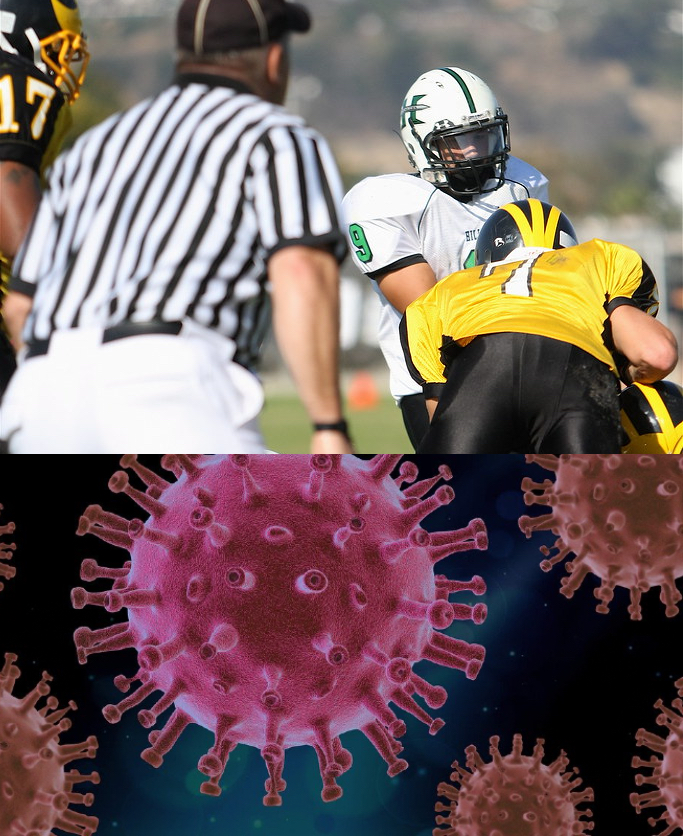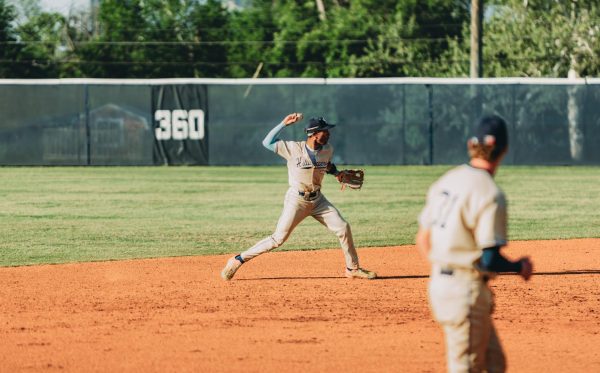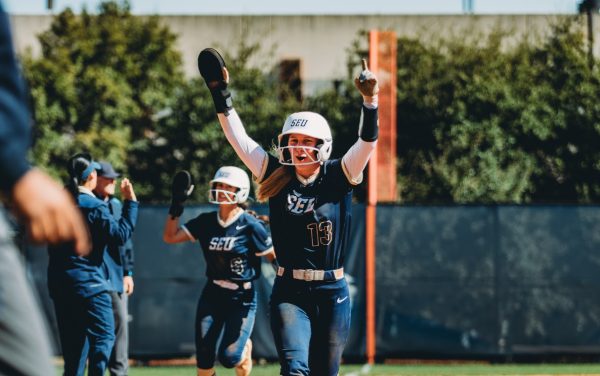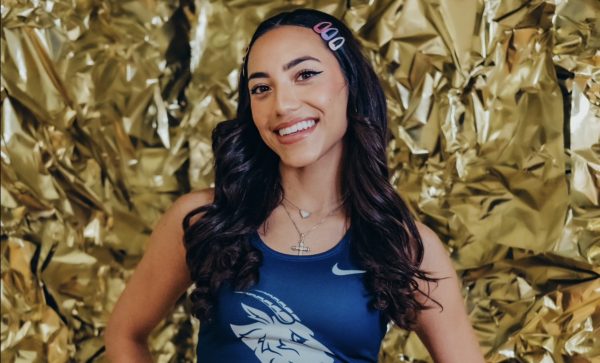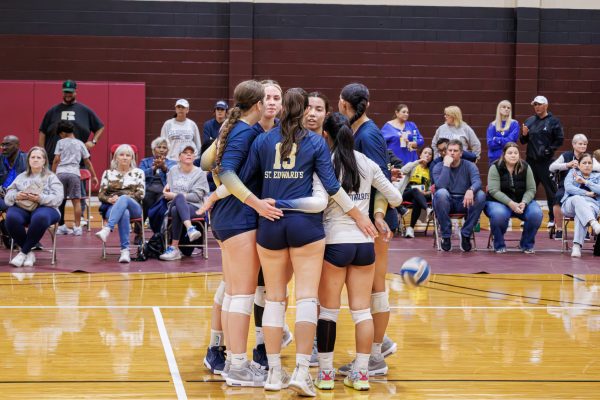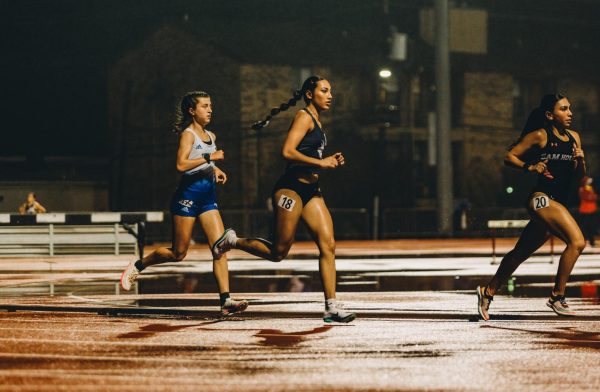High school recruitment period for DI, DII universities extended to May 31
Photos from Creative Commons / Graphic by Gracie Watt
Due to the coronavirus outbreak, most highschool athletes involved in spring sports will have an additional obstacle with taking their talents to the next step.
As winter transitions to spring, the much-anticipated college NCAA Tournament, known as “March Madness,” fills the screens of sports fanatics across the world. However, filling out brackets and watching buzzer beater moments has been put on pause due to COVID-19, a pandemic that has changed the sports world tremendously.
Not only did the coronavirus put a halt on one of the year’s most-watched sports events, but it also altered the recruitment process for high school and college athletes. Every year, the NCAA strives for a strict recruitment process, holding restrictions on in-person contact called a “dead period.” This period prohibits on-campus visits and meeting with coaches and players in person. Due to the coronavirus, the NCAA administrative committee announced the dead period will be extended through May 31.
This puts athletes and coaches in a difficult bind.
This extended dead period conflicts with the athlete’s process of choosing the best-fit school and coaches finding the right players to fit the program. Amongst this alarming news, with high schools across the country closing, spring sport athletes face even more adversity as they will not be able to showcase their talent for potential college coaches.
Although access to players’ film is fairly easy, there’s a huge difference between watching film and observing the player’s skills in person. The recruitment process is deeper than reviewing stats and athletic ability. College coaches evaluate players on and off the court, watching the athlete’s every move from how they react to adversity on the court or field to how they carry themselves outside of their sport.
There are many “what ifs” in the air about this restriction that takes a toll on this upcoming recruiting time period. One of this year’s most controversial topics is the increase of players entering the transfer portal. More than 500 names have been entered into the men’s basketball transfer portal this month, some of which entered as soon as their season ended.
With the coronavirus affecting recruiting tremendously, student-athletes are now forced to go with their gut instinct as opposed to visiting campuses and getting a feel for the school’s program firsthand.
This takes away the experience in choosing the future home for an athlete. Coaches will now have to rely on film from previous seasons while using references from their previous high school and AAU coaches. Phone conversations between the players and coaches will ultimately be the sole factor in this year’s virtual recruitment process, an interesting new adjustment for the NCAA.


